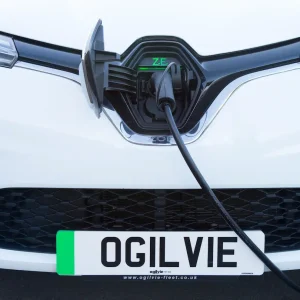According to Warranty Direct individual drivers and fleets could soon be spending £1 billion a year on repairing vehicles damaged by potholes. That’s pretty alarming to say the least and underscores what I have been saying for years that, unless we have a proper road maintenance and repair programme in place, we will soon be driving on third world roads!
In my 2 February blog on black holes, I made reference to the types of avoiding action drivers were now taking to prevent costly damage from black holes. Apparently, around four in ten drivers admitted to having swerved to avoid a pothole, of which nearly half turned towards oncoming traffic in doing so! Hitting kerbs and mounting the pavement were other self-defeating avoiding actions taken by drivers.
The reason I highlight these potentially dangerous preventative measures being taken by drivers is that it is not just potholes that have been making the headlines recently. Driver safety has also been coming to the fore of the news agenda.
The Institute of Advanced Motorists has warned that cuts to road safety budgets will cost money and lives. While we now top the world road safety league, with road deaths or serious injuries now below the 2000 benchmark, each fatal accident apparently costs UK PLC £1.79m in lost output and health care, not counting the personal cost of grief suffered by family and close friends. If the current downward trend is knocked off course by cuts to road safety budgets the ultimate cost to the economy could be as high as £4 billion according to the IAM.
The latest road safety cut was announced at the beginning of last month when RoadSafe’s ‘Driving for Better Business’ campaign had its grant cut by the Department for Transport, affecting the potential road safety of fleets. Let us not forget that around one in four road accidents involve ‘at work’ drivers with over 550 ‘at work’ drivers estimated to have been killed on Britain’s roads last year with nearly 100,000 injured while driving on company business.
The road safety charity, Brake, has this week announced the results of a survey, which once more highlight the dangers of over-confidence behind the wheel. It will come as no surprise to learn that we feel we are better drivers than the next, with one in three worried that there are more dangerous drivers on our roads than safe drivers.
The fact remains that human error contributes to around 95% of road traffic accidents and one of the key ways of encouraging safer driving is to change driver behaviour and attitude. Indeed, organisations have a duty of care responsibility to do everything practicable to protect their ‘at work’ employees and other road users. That includes encouraging safer driving.
Driver training as provided by the IAM and other organisations is just one component in this drive for greater driver road safety. Campaigns like RoadSafe’s ‘Driving for Better Business’ and Brake’s ‘Pledge to Drive Safely’ are other important components.
Against this backdrop, the government’s decision to review motorway speed limits with the possibility of them being raised to 80mph may appear counterproductive to the road safety messages being promoted. In reality, will UK PLC become more productive as a result of potentially faster journey times? For sure, its CO2 targets will take a hammering, with fuel consumption increased by as much as 20%..
The challenge for all world record holders is to hold on to their titles. There can’t be many better titles to defend than topping the world road safety league. But to do so, we need to provide our drivers with safe, properly engineered and maintained roads and continue to beat the drum on road safety. Wouldn’t it be good in 2012, Olympic year, to at least boast of one worthy gold medal?
Follow BusinessCar on TWITTER





